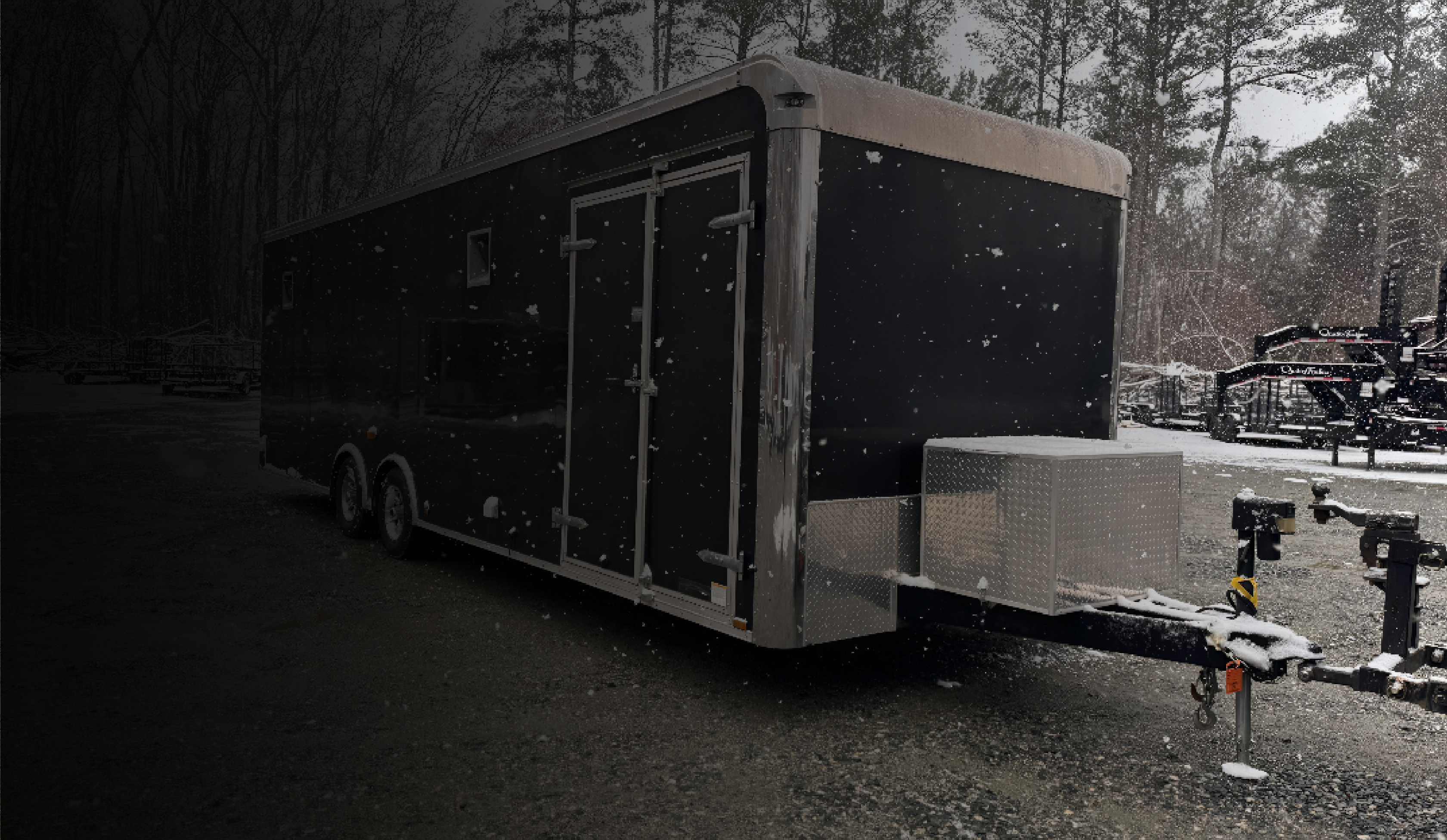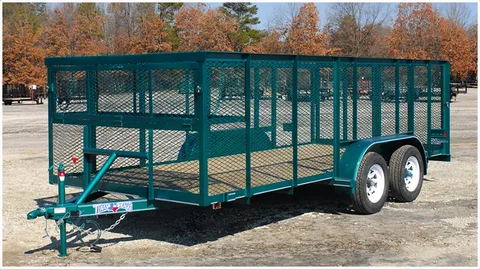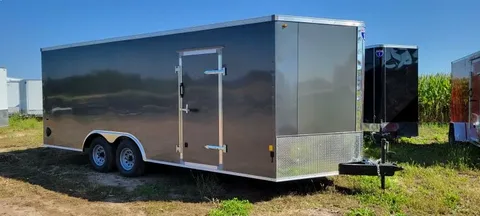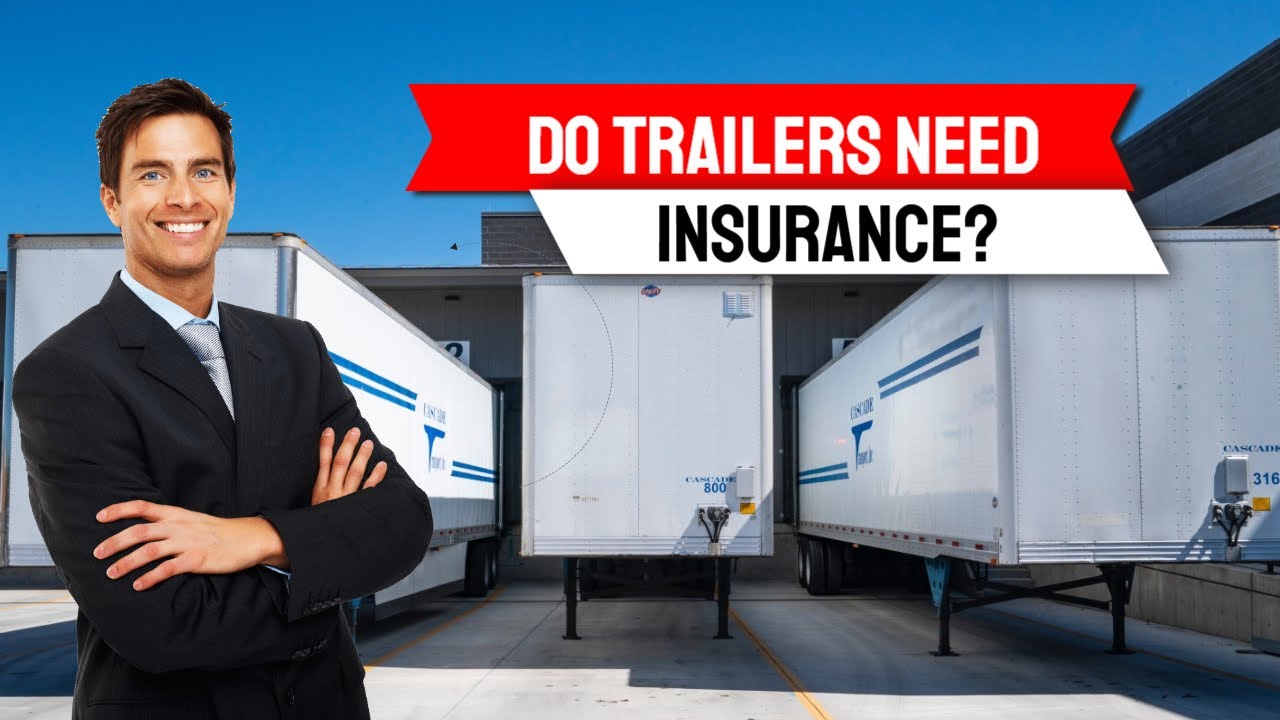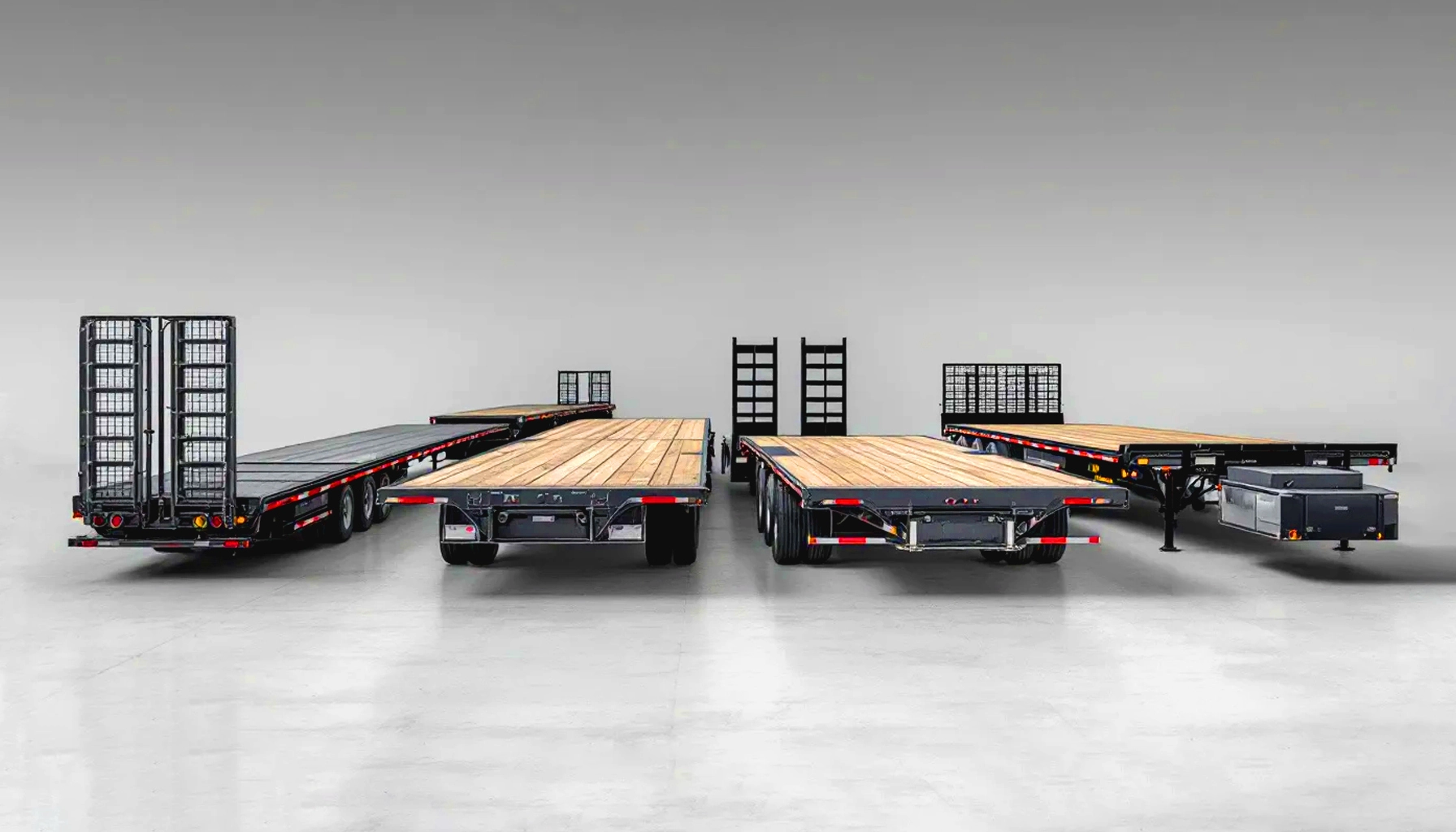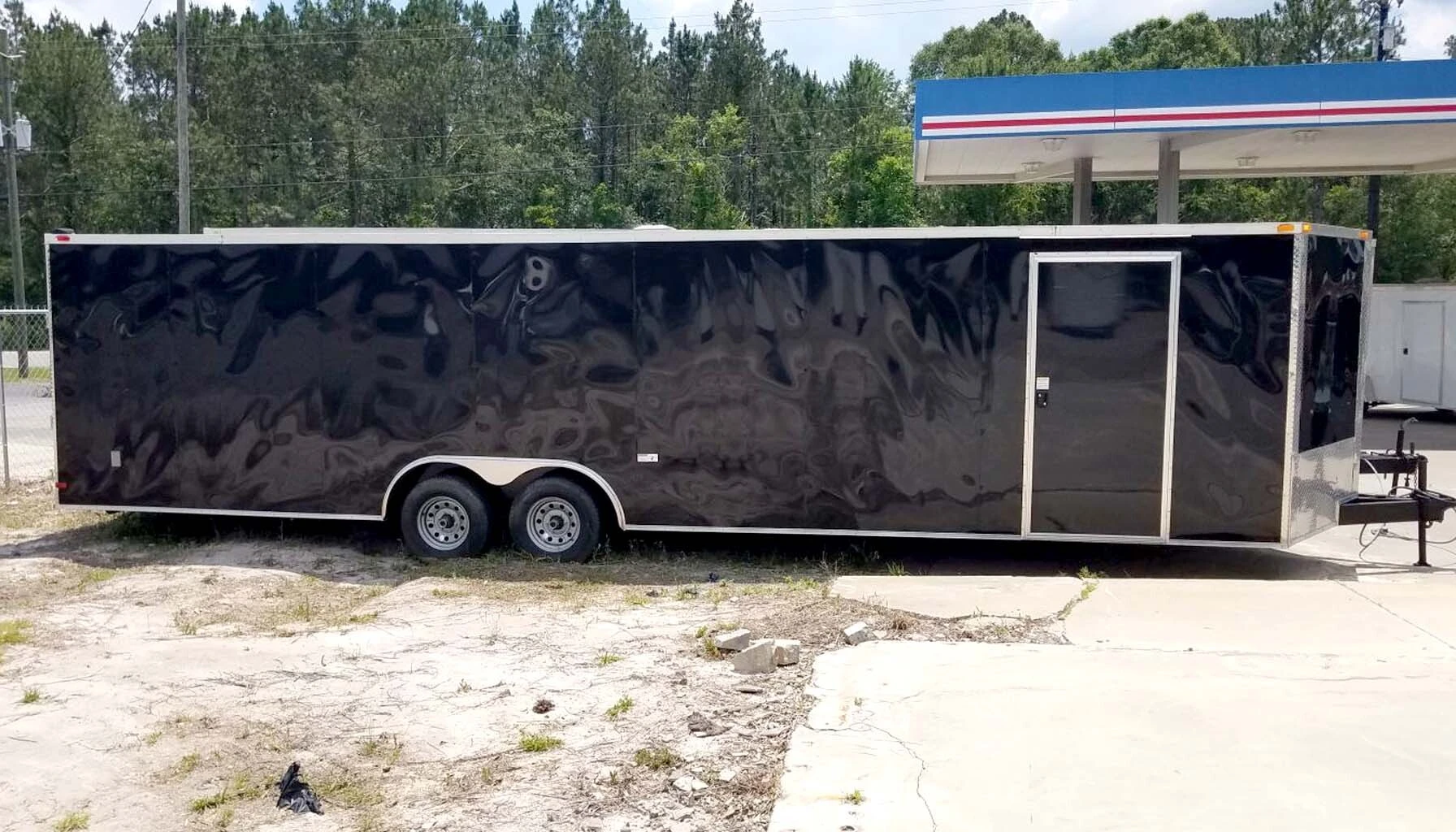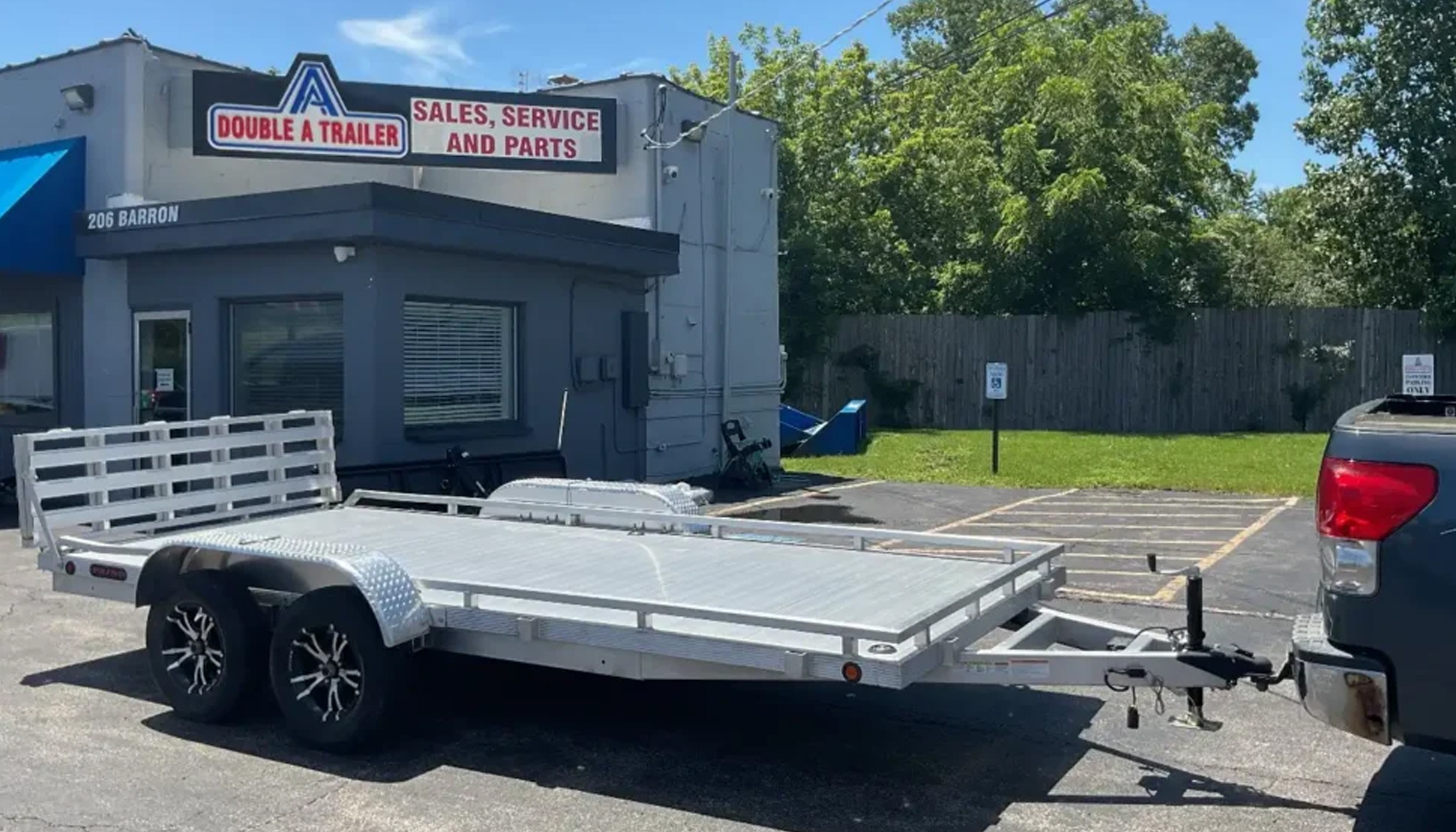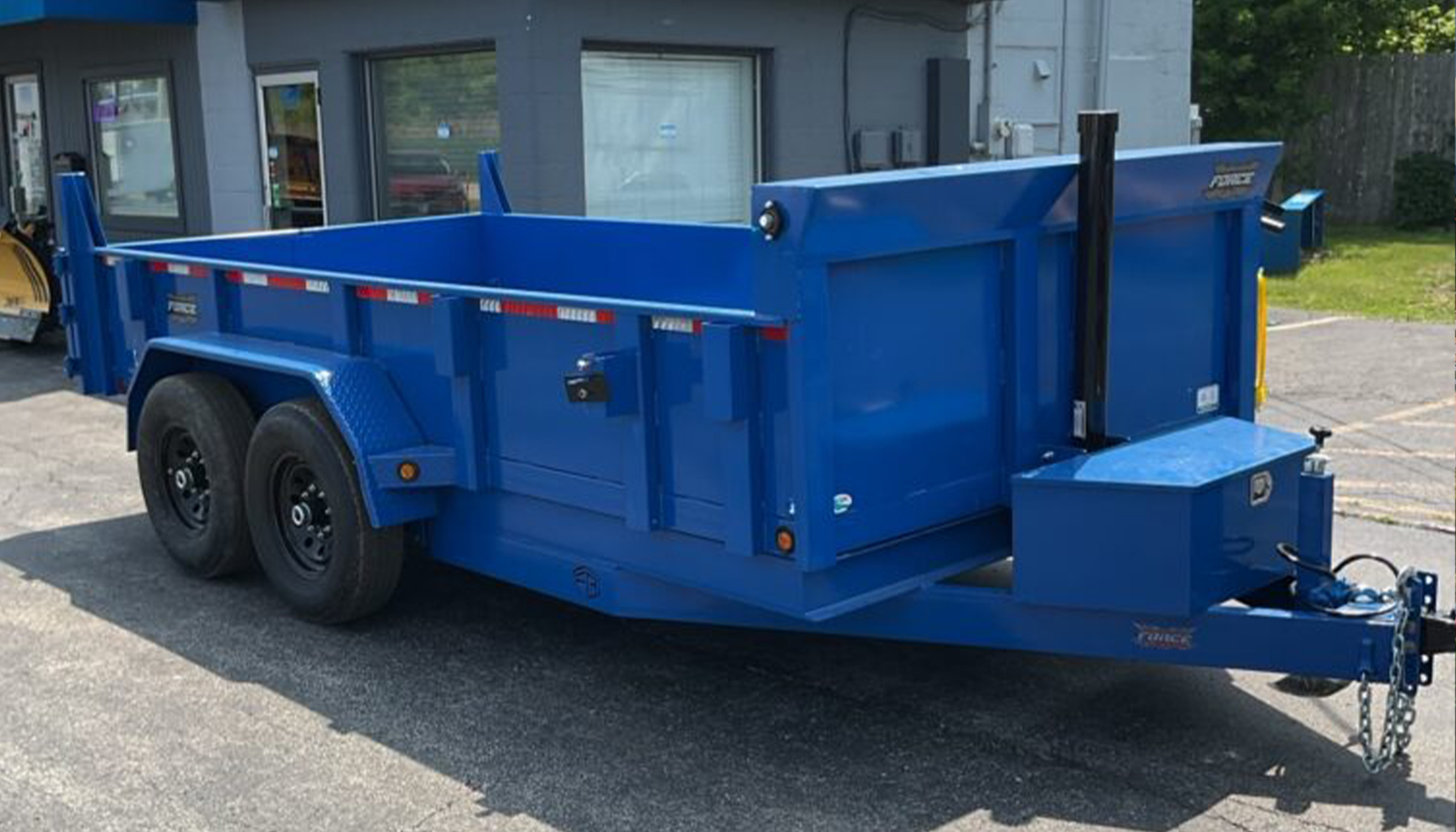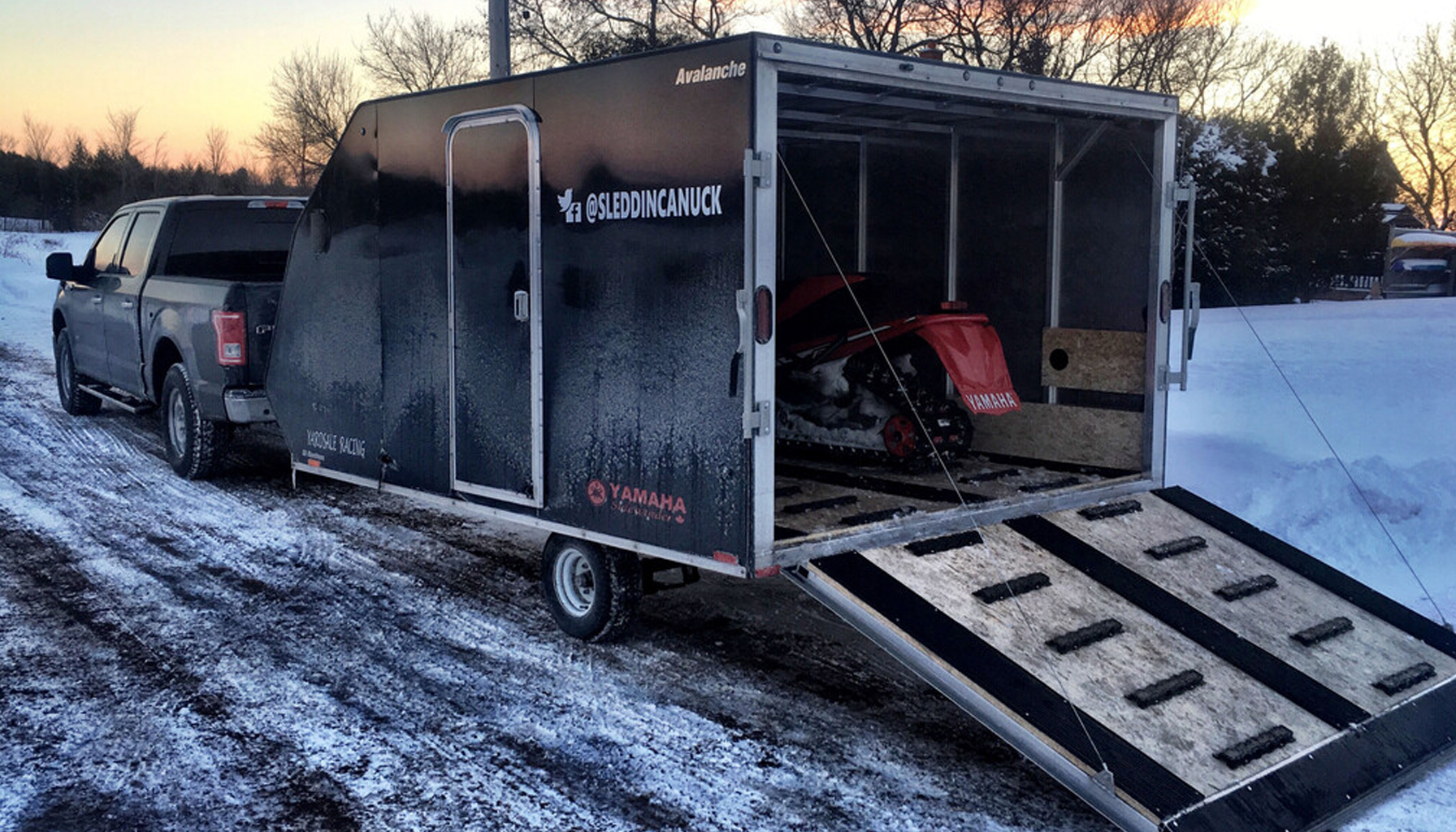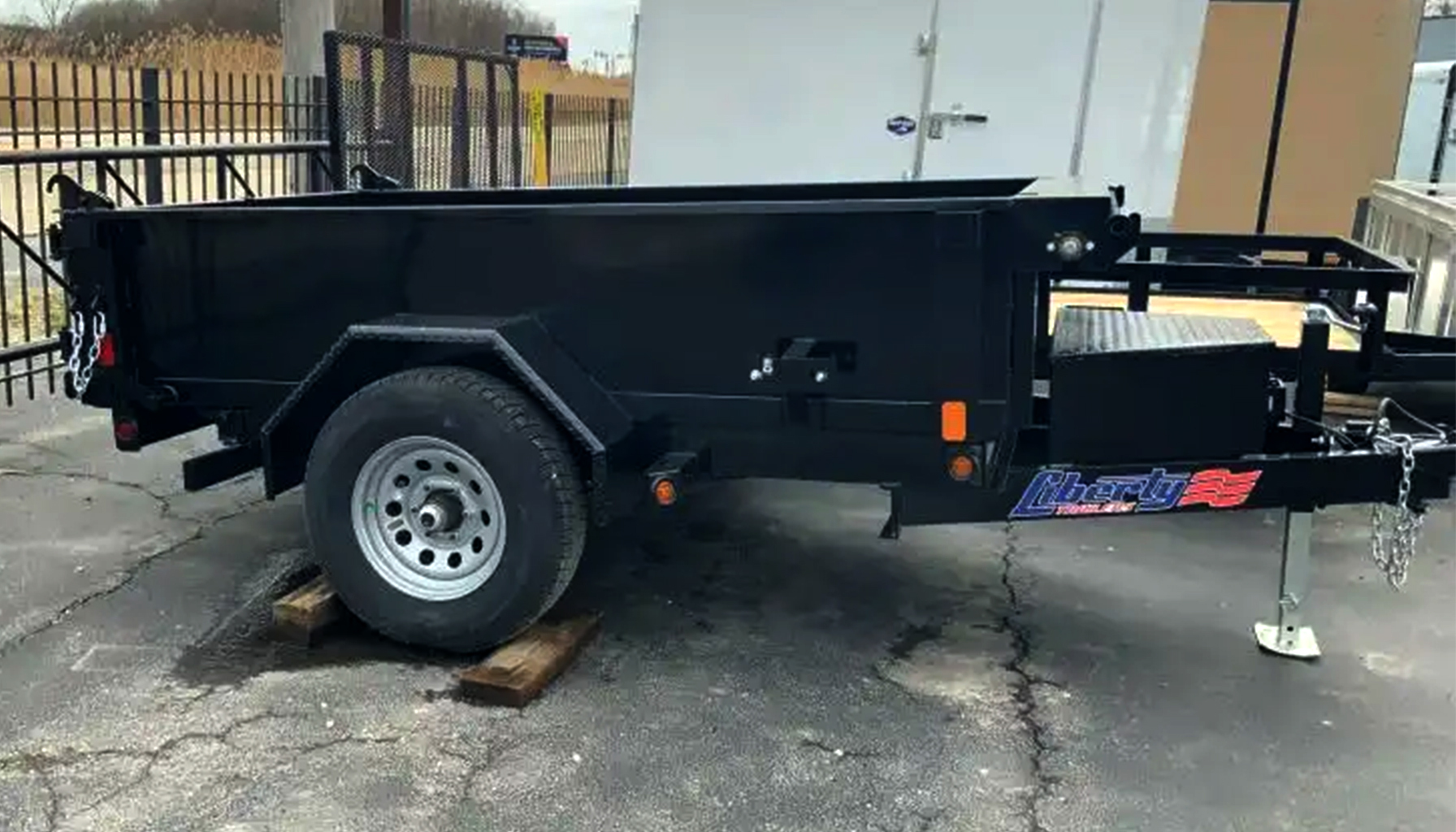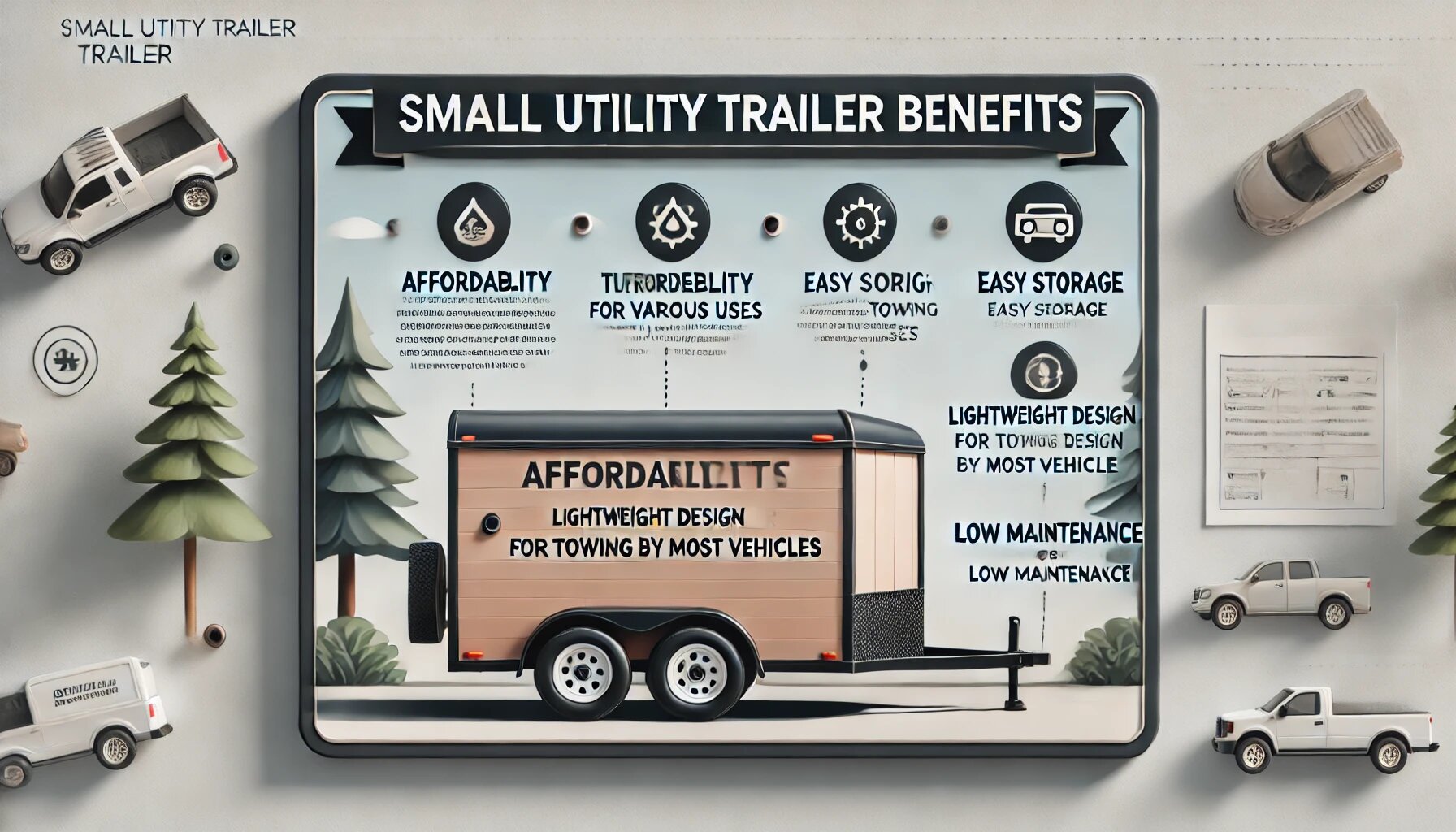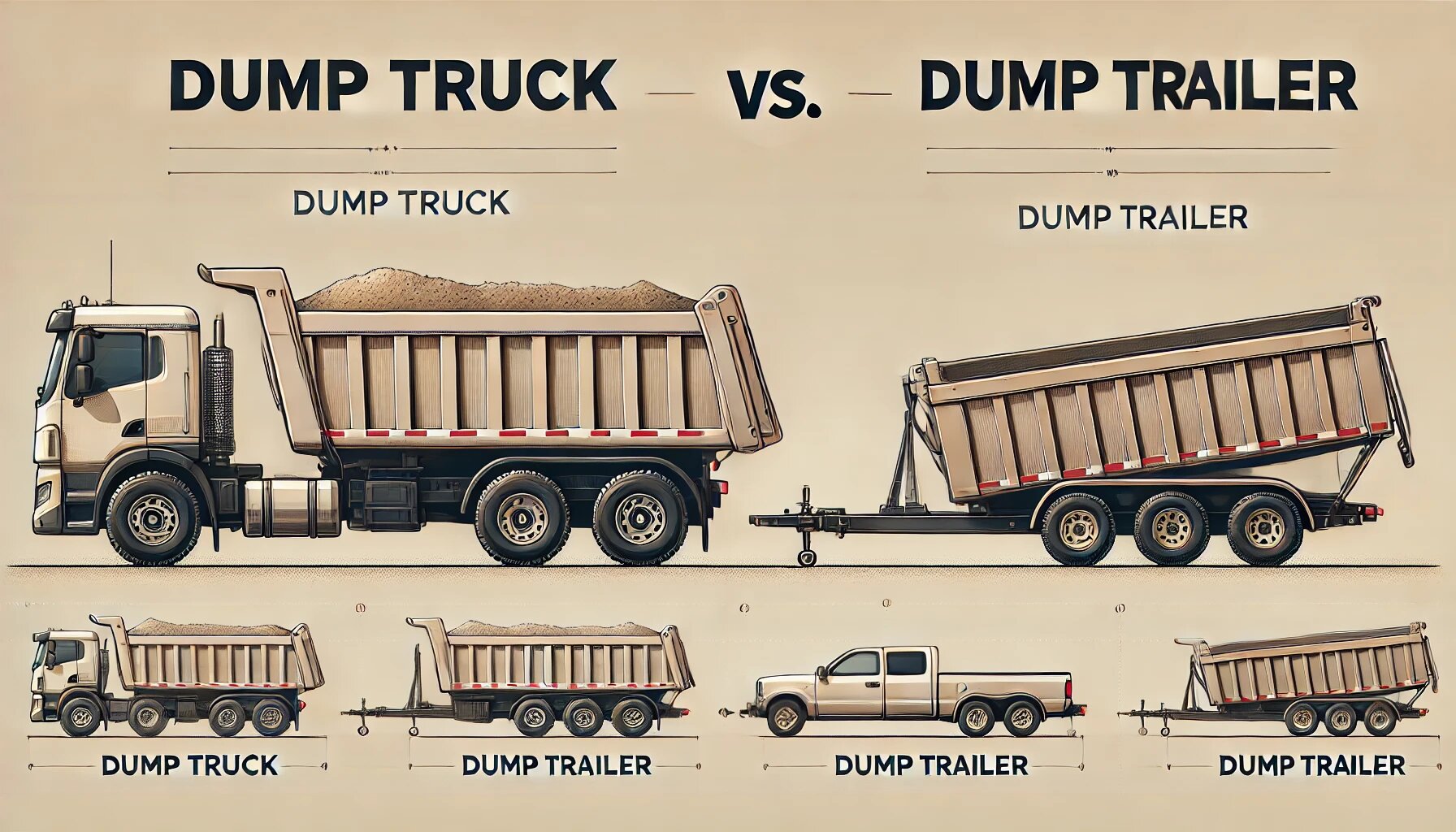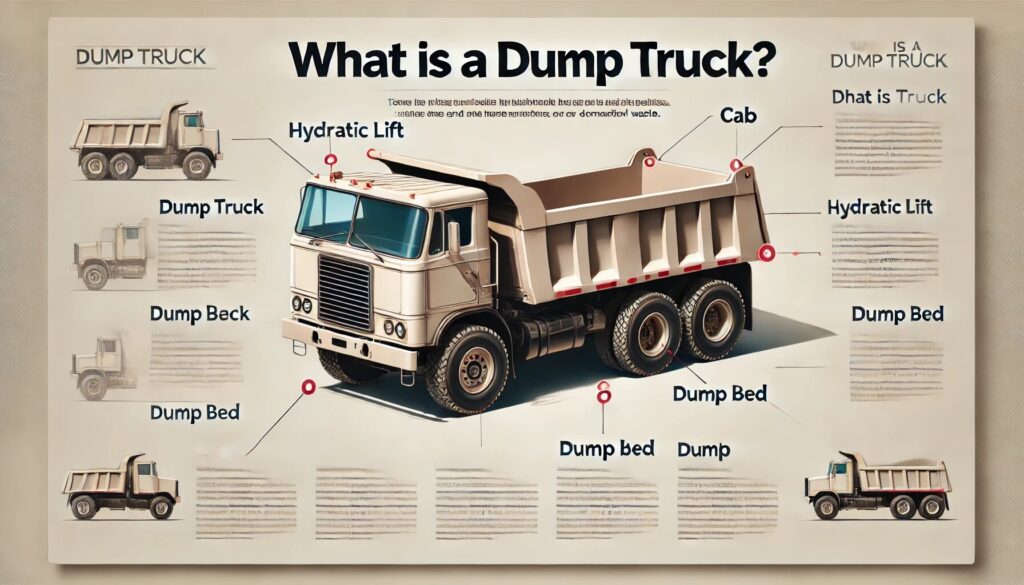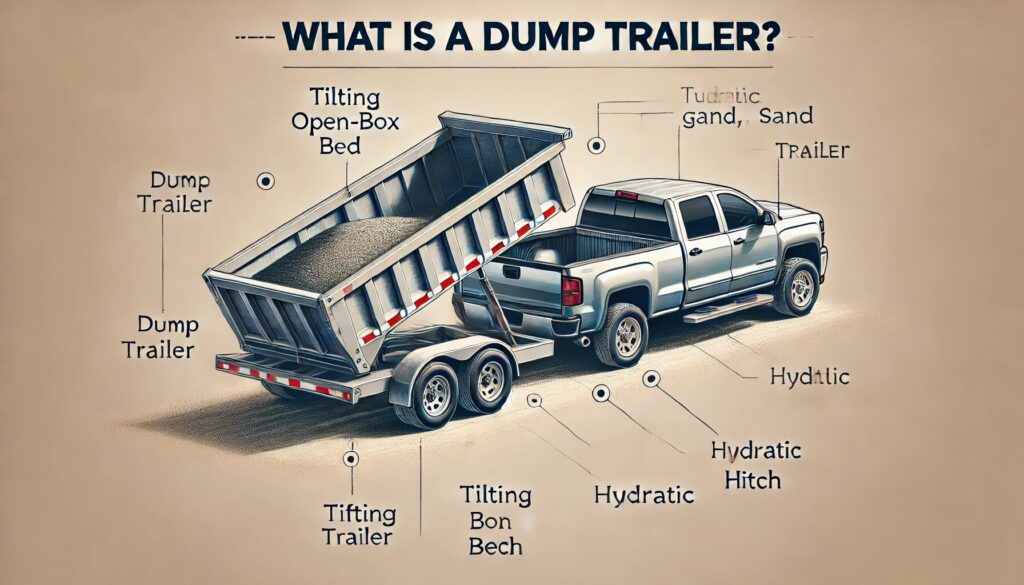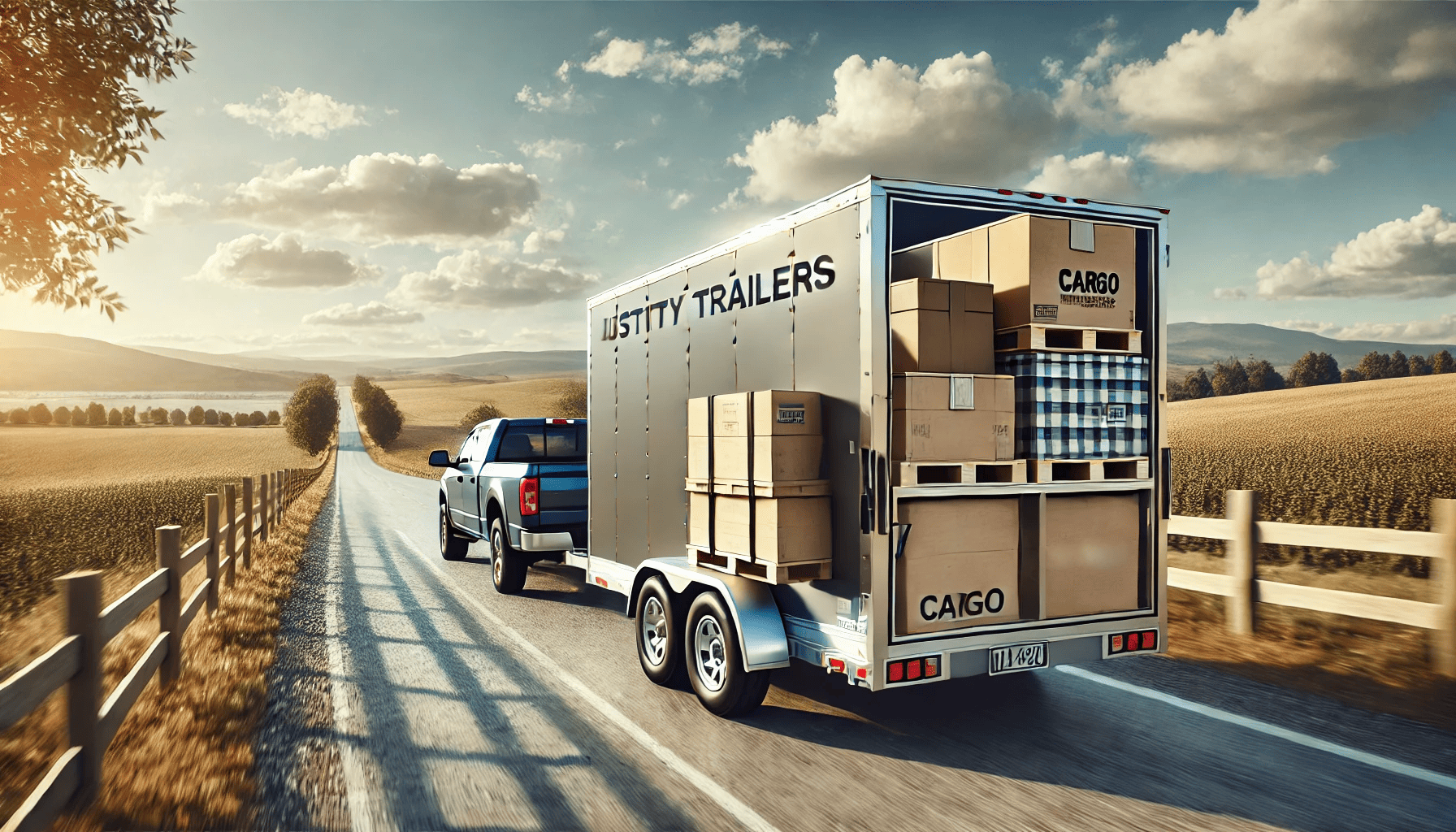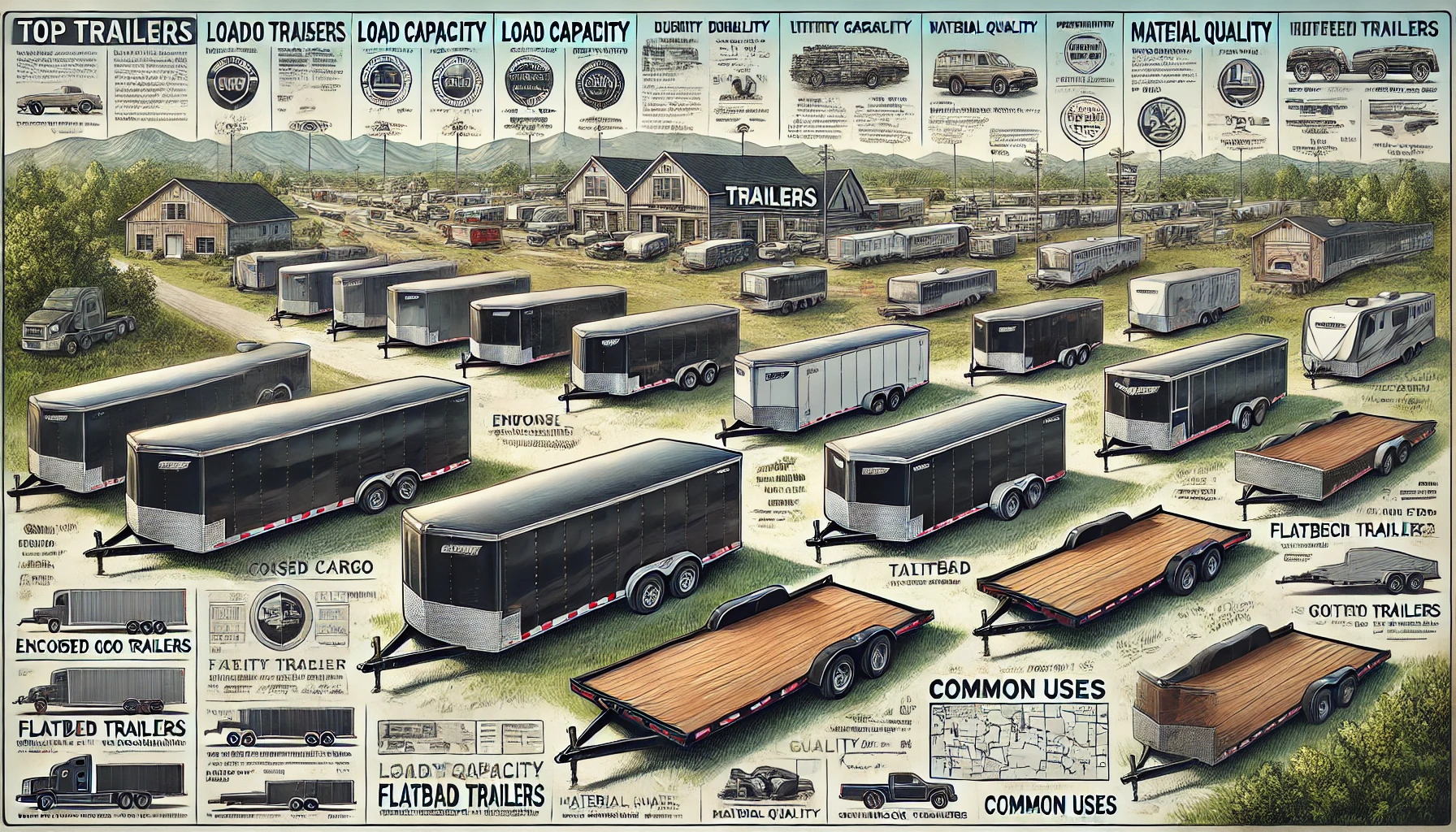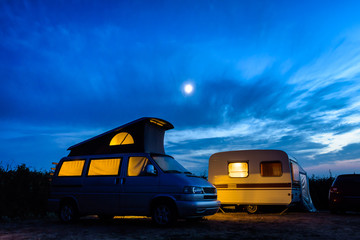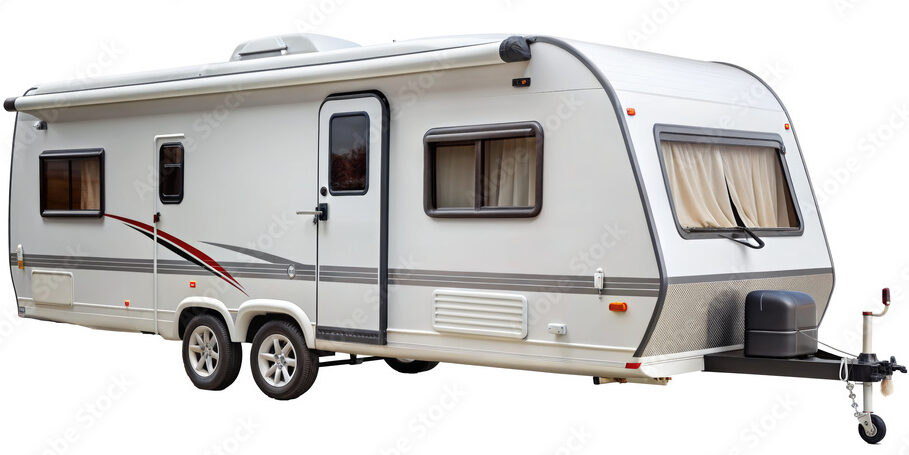Dump trailers have become a game-changer for modern farmers. If you’re searching for dump trailers for sale, you’re not just looking for a piece of equipment; you’re actually investing in time, efficiency, and peace of mind.
Because let’s be honest, nothing slows down farm work like struggling with the wrong hauling gear or unreliable machinery that quits on you halfway through the day.
So before you get lost in endless listings of dump trailers. Let’s walk through exactly what to look for, which models deserve your attention in 2025, and how to make sure you’re getting real value for your money.
What Is a Dump Trailer and How Does It Work?
A dump trailer is your hauling buddy on the farm. It’s built with a tilting bed that lifts using a hydraulic system. So, instead of shovelling loads by hand, you just hit a button and let gravity do the hard work.
You can tow it behind your truck or tractor to haul feed, soil, or gravel, whatever the day calls for. Once you’re in position, the hydraulics raise the bed, and the load slides right out. It’s quick, clean, and saves hours of heavy lifting.
Most agricultural dump trailers come in two main setups:
- Bumper pull: lighter, more maneuverable, great for smaller farms.
- Gooseneck hitch: connects over the truck’s rear axle, offering better balance and more load capacity for big operations.
Clear your confusion by reading our detailed guide on: Are Dump Trailers Worth the Investment? Everything You Need To Know
Top Dump Trailer Models to Watch in 2025 (and Why)
Choosing the right trailer is all about matching your work to the trailer’s muscle. Below are some of the best dump trailer models farmers are loving in 2025. Each has its own strengths, depending on what kind of work you do.
1. Double A FORCE 14K Telescopic Cylinder Dump Trailer
The 2026 FORCE 14K Telescopic Cylinder Dump Trailer is one of those models that quietly earns respect on the farm. It’s built tough, with a heavy-duty steel frame and tandem axles that keep it steady under heavy loads.
The hydraulic lift works smoothly, making unloading effortless. Farmers like it because it’s the perfect size: roomy enough for big hauling jobs, yet compact enough to maneuver around tight farm paths.
2. Big Tex 14LP Heavy-Duty Dump Trailer
If you’ve got serious hauling to do, the Big Tex 14LP is like that reliable farmhand who never complains. Built with a heavy-duty steel frame, this model can handle rugged daily use from hauling gravel and sand to clearing debris after storms.
Its low-profile design makes loading easier, especially with skid steers or compact tractors. The scissor lift system provides a higher dump angle than most standard trailers, which means less residue sticking to the bed. Farmers also love its easy-access hydraulic system, it’s powerful yet low-maintenance, ideal for long-term reliability.
3. Sure-Trac HD Low Profile Dump Trailer
This one’s for the farmers who appreciate precision and smooth operation. The Sure-Trac HD model is engineered for stability — a blessing if your farm roads are uneven or sloped. Its low center of gravity and reinforced sidewalls keep it steady under pressure, even with full loads.
What really sets it apart is the hydraulic system, quiet, responsive, and built to last. Plus, Sure-Trac adds a thoughtful touch with its powder-coated finish that resists rust, ideal for those who work in wetter climates or near the coast.
4. PJ Trailers DL Series
If you deal with bulk materials or long hauls, the PJ DL Series is your best friend. These trailers are famous among farmers who need to dump fast and move on to the next job. The end-dump design provides a higher tilt angle, which means full unloading without shovel work.
You can choose between bumper pull and gooseneck hitch setups, depending on your Farm hauling equipment volume. Its hydraulic lift system is one of the most efficient in its class, capable of lifting heavier loads without strain. The reinforced cross-member frame also ensures stability even under maximum trailer load capacity.
5. Load Trail 83” x 14’ Dump Trailer
If you’ve been searching for cheap dump trailers for sale that don’t feel cheap, the Load Trail 83” x 14’ is the one to look at first. This model is a gem for small to mid-size farms looking for a reliable dump solution without breaking the bank.
Despite being more budget-friendly, it doesn’t cut corners. The durable steel frame holds up beautifully under constant use, while the hydraulic dump system is fast and consistent. Farmers love how easy it is to service, most parts are available through local dealers, which makes ownership simple and cost-effective.
Buying Tips & Checklist for Farmers
Buying a dump trailer is a serious investment but it doesn’t have to be stressful. Here’s what you should keep in mind before paying.
1. Matching the Trailer to Your Farm’s Needs
Start with the basics: what do you actually haul? If you’re constantly moving compost, manure, or gravel, a heavy-duty construction trailer is worth every penny. Smaller farms that just need to transport feed or tools can get away with a lighter utility trailer.
And don’t overlook payload weight limits — always match your trailer’s capacity to what you’re hauling. Overloading not only strains the hydraulics but can shorten your trailer’s lifespan and compromise safety.
Check out Where Can You Find Dump Trailers for Sale in Wisconsin?
2. Inspecting Build Quality and Hydraulics
Before you invest in a dump trailer, take a moment to check how well it’s built. It’ll tell you a lot about how long it’ll last.
- Check if the welds are clean, even, and solid.
- Look closely for rust, especially around joints and under the frame.
- Test the hydraulics, it should lift smoothly, hold pressure, and stay quiet without leaks.
- Review trailer bed dimensions to ensure they match your hauling needs and tractor capacity.
If you’re considering a pre-owned option, focus on used dump trailers for sale nearby so you can inspect them in person. A trailer with a strong frame and a healthy hydraulic system is worth more than one with shiny paint and hidden damage.
3. Local Suppliers vs Imported Options
Local suppliers often win for convenience, faster delivery, easier service, and real human support when things break. Searching dump trailers for sale near me can also help you compare prices and physically check the build before purchase.
Imported options sometimes come cheaper upfront, but shipping costs and delayed parts can add up. Choose what aligns with your long-term convenience, not just the sticker price.
4. Negotiation Tips (Warranty, Parts, and Service)
Before signing the deal, make sure you’re not just buying the trailer, you’re buying peace of mind too. Here’s what to check before shaking hands:
- Review the warranty carefully. Pay close attention to coverage on the hydraulic system and axles because those are the most expensive parts to repair.
- Ask how long parts are covered. Some brands offer multi-year warranties, which can save you thousands in future repairs.
- Confirm parts availability. Make sure your dealer keeps common replacement parts in stock, including cylinders, hoses, or lift components.
- Check service turnaround time. A two-week wait for a cylinder replacement during harvest season can cost more than any discount you negotiated.
5. Financing and Leasing
Many farmers now lease hydraulic dump trailers for short-term projects or seasonal work. Leasing can be a smart move if cash flow is tight or you want to test a brand before committing. If buying, look for 0% or low-interest plans; you’ll find plenty of reputable dealers offer them during spring sale seasons.
6. Planning for Repairs and Maintenance
A dump trailer is built tough, but it still needs care. Ask where you’ll get hydraulic oil, brake pads, and lift seals locally. Keep a simple maintenance checklist and check tire pressure weekly, grease hinges, and rinse the bed after use to prevent rust.
A trailer that’s well cared for can easily last 15+ years, and when you’re ready to sell, it’ll still fetch a solid resale value.
Conclusion
Whether you’re checking out Dump Trailers for Sale online or walking through a local dealer’s lot, don’t just grab the cheapest or the shiniest one. The best dump trailer is the one that actually works with you, handles your loads, fits your setup, and makes your day a little easier.
If you’re serious about finding a trailer that’s actually worth the money, then check out Double A Trailers based in Grayslake, IL. You’ll not only find a wide variety of dump trailers but also flexible financing options, so you can get the right trailer now without worrying about the upfront cost.
See why more farmers are choosing Double A!
FAQ’s
What size dump trailer do I need?
Smaller farms often go for 10–12 ft trailers, while bigger ones need 14–16 ft models for heavier loads.
What should I check before buying used?
Inspect the hydraulics, frame welds, and axles and make sure the lift system runs smoothly.
Are aluminium dump trailers better than steel?
Aluminium is lighter and resists rust, while steel handles rougher, heavier work. Choose based on your hauling needs.

